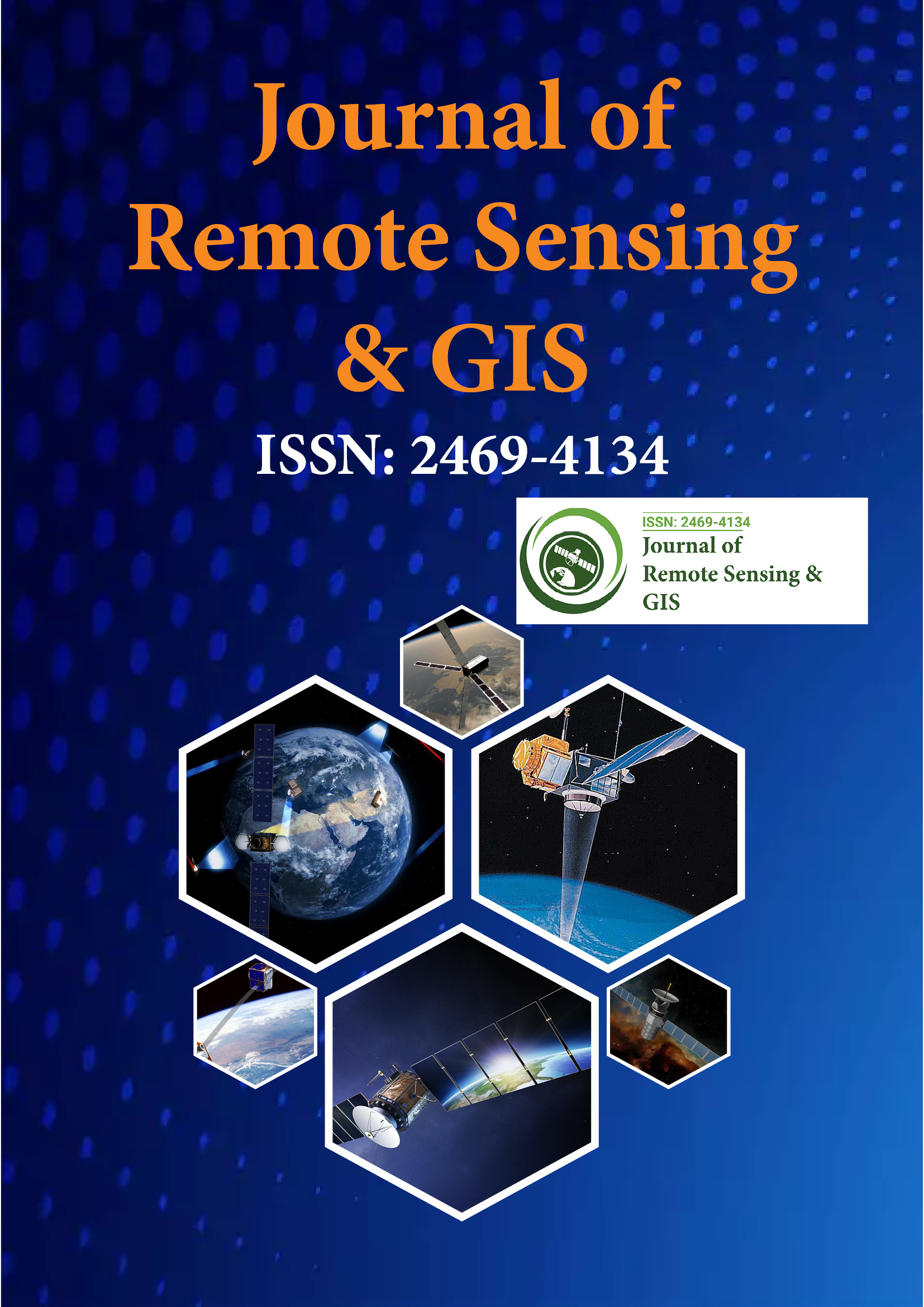Я«ЋЯ»ЂЯ«▒Я«┐Я«»Я«┐Я«ЪЯ«фЯ»ЇЯ«фЯ«ЪЯ»ЇЯ«ЪЯ«цЯ»Ђ
- Я«юЯ»є Я«ЋЯ»ЄЯ«ЪЯ»Ї Я«цЯ«┐Я«▒Я«ЋЯ»ЇЯ«ЋЯ«хЯ»ЂЯ««Я»Ї
- RefSeek
- Я«╣Я««Я»ЇЯ«ЪЯ«ЙЯ«░Я»ЇЯ«ЪЯ»Ї Я«фЯ«▓Я»ЇЯ«ЋЯ«▓Я»ѕЯ«ЋЯ»ЇЯ«ЋЯ«┤Я«ЋЯ««Я»Ї
- EBSCO AZ
- OCLC- WorldCat
- Я«фЯ«фЯ»ЇЯ«│Я«ЙЯ«ЕЯ»ЇЯ«ЋЯ«│Я»Ї
- Я«џЯ«░Я»ЇЯ«хЯ«цЯ»ЄЯ«џ Я«ЁЯ«▒Я«┐Я«хЯ«┐Я«»Я«▓Я»Ї Я«ЁЯ«ЪЯ»ЇЯ«ЪЯ«хЯ«БЯ»ѕЯ«фЯ»ЇЯ«фЯ«ЪЯ»ЂЯ«цЯ»ЇЯ«цЯ«▓Я»Ї
- Я«»Я»ѓЯ«░Я»І Я«фЯ«фЯ»Ї
- Я«ЋЯ»ѓЯ«ЋЯ»ЂЯ«│Я»Ї Я«ИЯ»ЇЯ«ЋЯ«ЙЯ«▓Я«░Я»Ї
Я«фЯ«»Я«ЕЯ»ЂЯ«│Я»ЇЯ«│ Я«ЄЯ«БЯ»ѕЯ«фЯ»ЇЯ«фЯ»ЂЯ«ЋЯ«│Я»Ї
- Я«еЯ»ІЯ«ЋЯ»ЇЯ«ЋЯ««Я»Ї Я««Я«▒Я»ЇЯ«▒Я»ЂЯ««Я»Ї Я«еЯ»ІЯ«ЋЯ»ЇЯ«ЋЯ««Я»Ї
- Я«џЯ«Ћ Я««Я«цЯ«┐Я«фЯ»ЇЯ«фЯ«ЙЯ«»Я»ЇЯ«хЯ»Ђ Я«џЯ»єЯ«»Я«▓Я»ЇЯ««Я»ЂЯ«▒Я»ѕ
- Я«ЁЯ«ЪЯ»ЇЯ«ЪЯ«хЯ«БЯ»ѕЯ«фЯ»ЇЯ«фЯ«ЪЯ»ЂЯ«цЯ»ЇЯ«цЯ»ЂЯ«цЯ«▓Я»Ї Я««Я«▒Я»ЇЯ«▒Я»ЂЯ««Я»Ї Я«ЋЯ«ЙЯ«фЯ»ЇЯ«фЯ«ЋЯ«фЯ»ЇЯ«фЯ«ЪЯ»ЂЯ«цЯ»ЇЯ«цЯ»ЂЯ«цЯ«▓Я»Ї
- Я«фЯ»іЯ«░Я»ЂЯ«│Я«ЪЯ«ЋЯ»ЇЯ«ЋЯ««Я»Ї
- Я«ЋЯ»ѕЯ«»Я»єЯ«┤Я»ЂЯ«цЯ»ЇЯ«цЯ»ЂЯ«фЯ»Ї Я«фЯ«┐Я«░Я«цЯ«┐Я«»Я»ѕ Я«џЯ««Я«░Я»ЇЯ«фЯ»ЇЯ«фЯ«┐Я«ЋЯ»ЇЯ«ЋЯ«хЯ»ЂЯ««Я»Ї
- Я«ЅЯ«ЎЯ»ЇЯ«ЋЯ«│Я»Ї Я«ЋЯ«ЙЯ«ЋЯ«┐Я«цЯ«цЯ»ЇЯ«цЯ»ѕЯ«ЋЯ»Ї Я«ЋЯ«БЯ»ЇЯ«ЋЯ«ЙЯ«БЯ«┐Я«ЋЯ»ЇЯ«ЋЯ«хЯ»ЂЯ««Я»Ї
Я«ЄЯ«еЯ»ЇЯ«цЯ«фЯ»Ї Я«фЯ«ЋЯ»ЇЯ«ЋЯ«цЯ»ЇЯ«цЯ»ѕЯ«фЯ»Ї Я«фЯ«ЋЯ«┐Я«░Я«хЯ»ЂЯ««Я»Ї
Я«юЯ«░Я»ЇЯ«ЕЯ«▓Я»Ї Я«ЃЯ«фЯ»ЇЯ«│Я»ѕЯ«»Я«░Я»Ї

Я«ЁЯ«БЯ»ЂЯ«ЋЯ«▓Я»Ї Я«ЄЯ«цЯ«┤Я»ЇЯ«ЋЯ«│Я»ѕЯ«цЯ»Ї Я«цЯ«┐Я«▒Я«ЋЯ»ЇЯ«ЋЯ«хЯ»ЂЯ««Я»Ї
- Я«ЅЯ«БЯ«хЯ»Ђ Я««Я«▒Я»ЇЯ«▒Я»ЂЯ««Я»Ї Я«іЯ«ЪЯ»ЇЯ«ЪЯ«џЯ»ЇЯ«џЯ«цЯ»ЇЯ«цЯ»Ђ
- Я«ЅЯ«»Я«┐Я«░Я»ЇЯ«хЯ»ЄЯ«цЯ«┐Я«»Я«┐Я«»Я«▓Я»Ї
- Я«ЋЯ«ЙЯ«▓Я»ЇЯ«еЯ«ЪЯ»ѕ Я«ЁЯ«▒Я«┐Я«хЯ«┐Я«»Я«▓Я»Ї
- Я«џЯ»ЂЯ«▒Я»ЇЯ«▒Я»ЂЯ«џЯ»ЇЯ«џЯ»ѓЯ«┤Я«▓Я»Ї Я«ЁЯ«▒Я«┐Я«хЯ«┐Я«»Я«▓Я»Ї
- Я«еЯ«░Я««Я»ЇЯ«фЯ«┐Я«»Я«▓Я»Ї & Я«ЅЯ«│Я«хЯ«┐Я«»Я«▓Я»Ї
- Я«еЯ«░Я»ЇЯ«џЯ«┐Я«ЎЯ»Ї & Я«╣Я»єЯ«▓Я»ЇЯ«цЯ»Ї Я«ЋЯ»ЄЯ«░Я»Ї
- Я«еЯ»ІЯ«»Я»єЯ«цЯ«┐Я«░Я»ЇЯ«фЯ»ЇЯ«фЯ»Ђ Я««Я«▒Я»ЇЯ«▒Я»ЂЯ««Я»Ї Я«еЯ»ЂЯ«БЯ»ЇЯ«БЯ»ЂЯ«»Я«┐Я«░Я«┐Я«»Я«▓Я»Ї
- Я«фЯ«»Я»І Я«ЄЯ«ЕЯ»ЇЯ«ЃЯ«фЯ«░Я»ЇЯ««Я»ЄЯ«ЪЯ«┐Я«ЋЯ»ЇЯ«ИЯ»Ї & Я«џЯ«┐Я«ИЯ»ЇЯ«ЪЯ««Я»ЇЯ«ИЯ»Ї Я«фЯ«»Я«ЙЯ«▓Я«юЯ«┐
- Я«фЯ»іЯ«цЯ»Ђ Я«ЁЯ«▒Я«┐Я«хЯ«┐Я«»Я«▓Я»Ї
- Я«фЯ»іЯ«░Я»ЂЯ«│Я»Ї Я«ЁЯ«▒Я«┐Я«хЯ«┐Я«»Я«▓Я»Ї
- Я«фЯ»іЯ«▒Я«┐Я«»Я«┐Я«»Я«▓Я»Ї
- Я««Я«░Я«фЯ«┐Я«»Я«▓Я»Ї & Я««Я»ѓЯ«▓Я«ЋЯ»ЇЯ«ЋЯ»ѓЯ«▒Я»Ђ Я«ЅЯ«»Я«┐Я«░Я«┐Я«»Я«▓Я»Ї
- Я««Я«░Я»ЂЯ«цЯ»ЇЯ«цЯ»ЂЯ«х Я«ЁЯ«▒Я«┐Я«хЯ«┐Я«»Я«▓Я»Ї
- Я««Я«░Я»ЂЯ«цЯ»ЇЯ«цЯ»ЂЯ«х Я«ЁЯ«▒Я«┐Я«хЯ«┐Я«»Я«▓Я»Ї
- Я««Я«░Я»ЂЯ«еЯ»ЇЯ«цЯ»Ђ Я«ЁЯ«▒Я«┐Я«хЯ«┐Я«»Я«▓Я»Ї
- Я«хЯ«БЯ«┐Я«Ћ Я««Я»ЄЯ«▓Я«ЙЯ«БЯ»ЇЯ««Я»ѕ
- Я«хЯ«┐Я«хЯ«џЯ«ЙЯ«»Я««Я»Ї Я««Я«▒Я»ЇЯ«▒Я»ЂЯ««Я»Ї Я««Я»ђЯ«ЕЯ»Ї Я«хЯ«│Я«░Я»ЇЯ«фЯ»ЇЯ«фЯ»Ђ
- Я«хЯ»ЄЯ«цЯ«┐Я«»Я«┐Я«»Я«▓Я»Ї
Я«џЯ»ЂЯ«░Я»ЂЯ«ЋЯ»ЇЯ«ЋЯ««Я»Ї
Я«џЯ»ЂЯ«ЋЯ»ЇЯ«еЯ«ЙЯ«ЋЯ»Ї Я«еЯ»ђЯ«░Я»ЇЯ«фЯ»ЇЯ«фЯ«┐Я«ЪЯ«┐Я«фЯ»ЇЯ«фЯ»Ђ, Я«ЋЯ«ЙЯ«иЯ»ЇЯ««Я»ђЯ«░Я»Ї Я«фЯ«ЪЯ»ЂЯ«ЋЯ»ѕЯ«»Я«┐Я«ЕЯ»Ї Я««Я«БЯ»Ї Я«ЁЯ«░Я«┐Я«фЯ»ЇЯ«фЯ»Ђ Я«ЁЯ«фЯ«ЙЯ«»Я««Я»Ї Я««Я«▒Я»ЇЯ«▒Я»ЂЯ««Я»Ї Я«хЯ»єЯ«│Я»ЇЯ«│ Я«еЯ«ЪЯ«цЯ»ЇЯ«цЯ»ѕ Я««Я«цЯ«┐Я«фЯ»ЇЯ«фЯ»ђЯ«ЪЯ»Ђ: Я«юЯ«┐Я«љЯ«јЯ«ИЯ»Ї Я««Я«▒Я»ЇЯ«▒Я»ЂЯ««Я»Ї Я«░Я«┐Я««Я»ІЯ«ЪЯ»Ї Я«џЯ»єЯ«ЕЯ»ЇЯ«џЯ«┐Я«ЎЯ»Ї Я«єЯ«ЋЯ«┐Я«»Я«хЯ«▒Я»ЇЯ«▒Я»ѕЯ«фЯ»Ї Я«фЯ«»Я«ЕЯ»ЇЯ«фЯ«ЪЯ»ЂЯ«цЯ»ЇЯ«цЯ»ЂЯ«цЯ«▓Я»Ї
Я«ЅЯ««Я»ѕЯ«░Я»Ї Я«ЁЯ«▓Я«┐1, Я«џЯ»ѕЯ«»Я«цЯ»Ї Я«ЁЯ«ЋЯ««Я«цЯ»Ђ Я«ЁЯ«▓Я«┐, Я«юЯ«ЙЯ«хЯ»ЄЯ«цЯ»Ї Я«ЄЯ«ЋЯ»ЇЯ«фЯ«ЙЯ«▓Я»Ї, Я««Я«ЕЯ»ЇЯ«ЕЯ«ЕЯ»Ї Я«фЯ«иЯ»ђЯ«░Я»Ї, Я««Я»іЯ«╣Я»ЇЯ«џЯ»єЯ«ЕЯ»Ї Я«ЃЯ«фЯ«цЯ»ЇЯ«▓Я»Ї, Я««Я»ЂЯ«ЋЯ»ђЯ««Я»Ї Я«ЁЯ«╣Я»ЇЯ««Я«цЯ»Ї, Я«╣Я««Я»ЇЯ«цЯ«┐ Я«ЁЯ«▓Я»Ї-Я«цЯ«░Я«фЯ»Ї, Я«џЯ«▓Я»Є Я«ЁЯ«▓Я«┐
Я«ЋЯ«ЙЯ«иЯ»ЇЯ««Я»ђЯ«░Я»Ї Я«фЯ«ЪЯ»ЂЯ«ЋЯ»ѕ Я«ЁЯ«ЕЯ»ѕЯ«цЯ»ЇЯ«цЯ»Ђ Я«фЯ«ЋЯ»ЇЯ«ЋЯ«ЎЯ»ЇЯ«ЋЯ«│Я«┐Я«▓Я»ЂЯ««Я»Ї Я«ЅЯ«»Я«░Я««Я«ЙЯ«Е Я««Я«▓Я»ѕЯ«ЋЯ«│Я«ЙЯ«▓Я»Ї Я«џЯ»ѓЯ«┤Я«фЯ»ЇЯ«фЯ«ЪЯ»ЇЯ«ЪЯ»ЂЯ«│Я»ЇЯ«│Я«цЯ»Ђ, Я«њЯ«░Я»Є Я«њЯ«░Я»Ђ Я«ЋЯ«ЪЯ»ѕЯ«хЯ«ЙЯ«»Я»ЇЯ«фЯ»ЇЯ«фЯ»Ђ Я«ЅЯ«│Я»ЇЯ«│Я«цЯ»Ђ, Я«ЁЯ«цЯ«ЙЯ«хЯ«цЯ»Ђ Я«юЯ»ђЯ«▓Я««Я»Ї Я«еЯ«цЯ«┐ Я«фЯ«ЪЯ»ЂЯ«ЋЯ»ѕЯ«»Я«┐Я«▓Я»Ї Я«ЄЯ«░Я»ЂЯ«еЯ»ЇЯ«цЯ»Ђ Я«цЯ«БЯ»ЇЯ«БЯ»ђЯ«░Я»ѕ Я«хЯ»єЯ«│Я«┐Я«»Я»ЄЯ«▒Я»ЇЯ«▒Я»ЂЯ««Я»Ї. Я«ЋЯ«ЙЯ«иЯ»ЇЯ««Я»ђЯ«░Я»Ї Я«фЯ«ЪЯ»ЂЯ«ЋЯ»ѕЯ«»Я«┐Я«ЕЯ»Ї Я««Я«▓Я»ѕЯ«фЯ»Ї Я«фЯ«ЋЯ»ЂЯ«цЯ«┐Я«ЋЯ«│Я»Ї Я«ЋЯ«░Я«ЪЯ»ЂЯ««Я»ЂЯ«░Я«ЪЯ«ЙЯ«Е Я«еЯ«┐Я«▓Я«фЯ»ЇЯ«фЯ«░Я«фЯ»ЇЯ«фЯ»Ђ Я««Я«▒Я»ЇЯ«▒Я»ЂЯ««Я»Ї Я««Я«┐Я«ЋЯ«хЯ»ЂЯ««Я»Ї Я««Я»ѓЯ«ЪЯ«┐Я«» Я«фЯ«ЙЯ«▒Я»ѕЯ«ЋЯ«│Я»ЂЯ«ЪЯ«ЕЯ»Ї Я«еЯ«┐Я«▓Я»ѕЯ«»Я«▒Я»ЇЯ«▒ Я«џЯ«░Я«┐Я«хЯ»ЂЯ«ЋЯ«│Я»ѕЯ«ЋЯ»Ї Я«ЋЯ»іЯ«БЯ»ЇЯ«ЪЯ»ЂЯ«│Я»ЇЯ«│Я«Е. Я«ЄЯ«еЯ»ЇЯ«цЯ«ЋЯ»Ї Я«ЋЯ«ЙЯ«░Я«БЯ«┐Я«ЋЯ«│Я«┐Я«ЕЯ»Ї Я«ЁЯ«ЪЯ«┐Я«фЯ»ЇЯ«фЯ«ЪЯ»ѕЯ«»Я«┐Я«▓Я»Ї, Я««Я»ІЯ«░Я»ЇЯ«фЯ»ІЯ««Я»єЯ«ЪЯ»ЇЯ«░Я«┐Я«ЋЯ»Ї Я«фЯ«ЋЯ»ЂЯ«фЯ»ЇЯ«фЯ«ЙЯ«»Я»ЇЯ«хЯ»Ђ Я««Я«▒Я»ЇЯ«▒Я»ЂЯ««Я»Ї Я«фЯ«┐Я«▒ Я«цЯ»іЯ«ЪЯ«░Я»ЇЯ«фЯ»ЂЯ«ЪЯ»ѕЯ«» Я«ЋЯ«ЙЯ«░Я«БЯ«┐Я«ЋЯ«│Я«┐Я«▓Я«┐Я«░Я»ЂЯ«еЯ»ЇЯ«цЯ»Ђ Я«фЯ»ЄЯ«џЯ«┐Я«ЕЯ»Ї Я«ЋЯ»ЂЯ«БЯ«ЙЯ«цЯ«┐Я«џЯ«»Я«ЎЯ»ЇЯ«ЋЯ«│Я»ѕ Я««Я«цЯ«┐Я«фЯ»ЇЯ«фЯ»ђЯ«ЪЯ»Ђ Я«џЯ»єЯ«»Я»ЇЯ«хЯ«цЯ»Ђ, Я«хЯ»єЯ«│Я»ЇЯ«│Я««Я»Ї Я««Я«▒Я»ЇЯ«▒Я»ЂЯ««Я»Ї Я««Я«БЯ»Ї Я«ЁЯ«░Я«┐Я«фЯ»ЇЯ«фЯ»Ђ Я«ЁЯ«фЯ«ЙЯ«»Я«цЯ»ЇЯ«цЯ»ѕЯ«фЯ»Ї Я«фЯ»іЯ«▒Я»ЂЯ«цЯ»ЇЯ«цЯ»Ђ Я«ЁЯ«фЯ»ЇЯ«фЯ«ЋЯ»ЂЯ«цЯ«┐Я«»Я«┐Я«ЕЯ»Ї Я«ЅЯ«ЪЯ«▓Я»Ї Я«еЯ«ЪЯ«цЯ»ЇЯ«цЯ»ѕЯ«»Я»ѕЯ«фЯ»Ї Я«фЯ»ЂЯ«░Я«┐Я«еЯ»ЇЯ«цЯ»ЂЯ«ЋЯ»іЯ«│Я»ЇЯ«│ Я«ЅЯ«цЯ«хЯ»ЂЯ««Я»Ї. Я«џЯ»ЂЯ«ЋЯ»ЇЯ«еЯ«ЙЯ«ЋЯ»Ї Я«еЯ»ђЯ«░Я»ЇЯ«фЯ»ЇЯ«фЯ«┐Я«ЪЯ«┐Я«фЯ»ЇЯ«фЯ»ЂЯ«ЋЯ»ЇЯ«ЋЯ«ЙЯ«Е Я««Я«ЙЯ«░Я»ЇЯ«фЯ»ІЯ««Я»єЯ«ЪЯ»ЇЯ«░Я«┐Я«ЋЯ»Ї Я«ЁЯ«│Я«хЯ»ЂЯ«░Я»ЂЯ«ЋЯ»ЇЯ«ЋЯ«│Я»ѕ Я««Я«цЯ«┐Я«фЯ»ЇЯ«фЯ«┐Я«ЪЯ»ЂЯ«хЯ«цЯ«▒Я»ЇЯ«ЋЯ»Ђ Я«ЪЯ«┐Я«юЯ«┐Я«ЪЯ»ЇЯ«ЪЯ«▓Я»Ї Я«јЯ«▓Я«┐Я«хЯ»ЄЯ«иЯ«ЕЯ»Ї Я««Я«ЙЯ«ЪЯ«▓Я»ѕ (Я«ЪЯ«┐Я«ЄЯ«јЯ««Я»Ї) Я«фЯ«»Я«ЕЯ»ЇЯ«фЯ«ЪЯ»ЂЯ«цЯ»ЇЯ«цЯ«┐ Я«хЯ«ЪЯ«┐Я«ЋЯ«ЙЯ«▓Я»Ї Я«хЯ«▓Я»ѕЯ«»Я««Я»ѕЯ«фЯ»ЇЯ«фЯ»ѕЯ«фЯ»Ї Я«фЯ«┐Я«░Я«┐Я«цЯ»ЇЯ«цЯ»єЯ«ЪЯ»ЂЯ«ЋЯ»ЇЯ«Ћ Я«░Я«┐Я««Я»ІЯ«ЪЯ»Ї Я«џЯ»єЯ«ЕЯ»ЇЯ«џЯ«┐Я«ЎЯ»Ї Я««Я«▒Я»ЇЯ«▒Я»ЂЯ««Я»Ї Я«юЯ«┐Я«љЯ«јЯ«ИЯ»Ї Я«еЯ»ЂЯ«ЪЯ»ЇЯ«фЯ«ЎЯ»ЇЯ«ЋЯ«│Я»Ї Я«фЯ«»Я«ЕЯ»ЇЯ«фЯ«ЪЯ»ЂЯ«цЯ»ЇЯ«цЯ«фЯ»ЇЯ«фЯ«ЪЯ»ЇЯ«ЪЯ«Е. Я«ЋЯ«ЪЯ»ЂЯ««Я»ѕЯ«»Я«ЙЯ«Е Я«хЯ«ЙЯ«ЕЯ«┐Я«▓Я»ѕ Я«еЯ«┐Я«▓Я»ѕЯ«ЋЯ«│Я«┐Я«ЕЯ»Ї Я«фЯ»ІЯ«цЯ»Ђ Я««Я«БЯ»Ї Я«ЁЯ«░Я«┐Я«фЯ»ЇЯ«фЯ»Ђ Я««Я«▒Я»ЇЯ«▒Я»ЂЯ««Я»Ї Я«хЯ»єЯ«│Я»ЇЯ«│Я««Я»Ї Я«ЈЯ«▒Я»ЇЯ«фЯ«ЪЯ»ЂЯ««Я»Ї Я«фЯ«ЋЯ»ЂЯ«цЯ«┐Я«ЋЯ«│Я»ѕ Я«хЯ«░Я»ѕЯ«»Я«▒Я»ЂЯ«фЯ»ЇЯ«фЯ«цЯ«▒Я»ЇЯ«ЋЯ»Ђ Я««Я«ЙЯ«░Я»ЇЯ«фЯ»ІЯ««Я»єЯ«ЪЯ»ЇЯ«░Я«┐Я«ЋЯ»Ї Я«ЁЯ«│Я«хЯ»ЂЯ«░Я»ЂЯ«ЋЯ»ЇЯ«ЋЯ«│Я»ѕ Я«єЯ«цЯ«░Я«┐Я«ЋЯ»ЇЯ«Ћ Я«ЋЯ»ІЯ«ЪЯ»Ђ, Я«џЯ«ЙЯ«»Я»ЇЯ«хЯ»Ђ Я««Я«▒Я»ЇЯ«▒Я»ЂЯ««Я»Ї Я«ЁЯ««Я»ЇЯ«џ Я«хЯ«░Я»ѕЯ«фЯ«ЪЯ«ЎЯ»ЇЯ«ЋЯ«│Я»Ї Я«ЅЯ«░Я»ЂЯ«хЯ«ЙЯ«ЋЯ»ЇЯ«ЋЯ«фЯ»ЇЯ«фЯ«ЪЯ»ЇЯ«ЪЯ«Е. Я«цЯ«ЙЯ«┤Я»ЇЯ«хЯ«ЙЯ«Е Я«фЯ«ЋЯ»ЂЯ«цЯ«┐Я«ЋЯ«│Я«┐Я«▓Я»Ї Я«ЁЯ«цЯ«┐Я«Ћ Я«ЋЯ»ЂЯ«ЪЯ«┐Я«»Я«┐Я«░Я»ЂЯ«фЯ»ЇЯ«фЯ»ЂЯ«ЋЯ«│Я»Ї Я««Я«▒Я»ЇЯ«▒Я»ЂЯ««Я»Ї Я«єЯ«▒Я»ЇЯ«▒Я«ЎЯ»ЇЯ«ЋЯ«░Я»ѕЯ«ЋЯ«│Я«┐Я«▓Я»Ї Я«ЋЯ«ЪЯ»ЇЯ«ЪЯ»ЂЯ««Я«ЙЯ«ЕЯ««Я»Ї Я««Я«▒Я»ЇЯ«▒Я»ЂЯ««Я»Ї Я«хЯ»єЯ«│Я»ЇЯ«│ Я«џЯ««Я«хЯ»єЯ«│Я«┐Я«ЋЯ«│Я»Ї Я«єЯ«▒Я»ЂЯ«ЋЯ«│Я»ѕ Я«ЁЯ«┤Я»ЂЯ«цЯ»ЇЯ«цЯ«┐ Я«ЁЯ«хЯ«▒Я»ЇЯ«▒Я«┐Я«ЕЯ»Ї Я«еЯ»ђЯ«░Я»Ї Я«џЯ»ЂЯ««Я«ЋЯ»ЇЯ«ЋЯ»ЂЯ««Я»Ї Я«цЯ«┐Я«▒Я«ЕЯ»ѕЯ«ЋЯ»Ї Я«ЋЯ»ЂЯ«▒Я»ѕЯ«цЯ»ЇЯ«цЯ»ЂЯ«│Я»ЇЯ«│Я«Е. Я«хЯ«░Я«┐Я«хЯ«ЪЯ«┐Я«х Я«ЁЯ«ЪЯ«░Я»ЇЯ«цЯ»ЇЯ«цЯ«┐, Я«џЯ«░Я«┐Я«хЯ»ЂЯ«фЯ»Ї Я«фЯ«░Я«хЯ«▓Я»Ї Я««Я«▒Я»ЇЯ«▒Я»ЂЯ««Я»Ї Я«хЯ»єЯ«│Я»ЇЯ«│ Я«џЯ««Я«хЯ»єЯ«│Я«┐ Я«еЯ«┐Я«▓Я»ѕЯ«ЋЯ«│Я»Ї Я«єЯ«ЋЯ«┐Я«»Я«хЯ«▒Я»ЇЯ«▒Я»ЂЯ«ЪЯ«ЕЯ»Ї Я«ЄЯ«БЯ»ѕЯ«еЯ»ЇЯ«цЯ»Ђ, Я«еЯ»ђЯ«░Я»ЇЯ«фЯ»ЇЯ«фЯ«┐Я«ЪЯ«┐Я«фЯ»ЇЯ«фЯ»ЂЯ«фЯ»Ї Я«фЯ«ЋЯ»ЂЯ«цЯ«┐Я«»Я»ѕ Я««Я»ѓЯ«ЕЯ»ЇЯ«▒Я»Ђ Я«хЯ«ЋЯ»ѕЯ«ЋЯ«│Я«ЙЯ«Ћ Я«хЯ«ЋЯ»ѕЯ«фЯ»ЇЯ«фЯ«ЪЯ»ЂЯ«цЯ»ЇЯ«ц Я«ЅЯ«цЯ«хЯ»ЂЯ«ЋЯ«┐Я«▒Я«цЯ»Ђ, Я««Я«БЯ»Ї Я«ЁЯ«░Я«┐Я«фЯ»ЇЯ«фЯ»Ђ Я««Я«▒Я»ЇЯ«▒Я»ЂЯ««Я»Ї Я«хЯ»єЯ«│Я»ЇЯ«│Я««Я»Ї Я«цЯ»іЯ«ЪЯ«░Я»ЇЯ«фЯ«ЙЯ«Е Я«фЯ«ЙЯ«цЯ»ЂЯ«ЋЯ«ЙЯ«фЯ»ЇЯ«фЯ»Ђ Я««Я«▒Я»ЇЯ«▒Я»ЂЯ««Я»Ї Я««Я»ЄЯ«▓Я«ЙЯ«БЯ»ЇЯ««Я»ѕЯ«ЋЯ»ЇЯ«ЋЯ»Ђ Я«ЁЯ«цЯ«┐Я«Ћ, Я«еЯ«ЪЯ»ЂЯ«цЯ»ЇЯ«цЯ«░ Я««Я«▒Я»ЇЯ«▒Я»ЂЯ««Я»Ї Я«ЋЯ»ЂЯ«▒Я»ѕЯ«еЯ»ЇЯ«ц Я««Я»ЂЯ«ЕЯ»ЇЯ«ЕЯ»ЂЯ«░Я«┐Я««Я»ѕ. 14 Я«цЯ»ЂЯ«БЯ»ѕ Я«еЯ»ђЯ«░Я»ЇЯ«еЯ«┐Я«▓Я»ѕЯ«ЋЯ«│Я«┐Я«▓Я»Ї SF1, 2, 5, 6 Я««Я«▒Я»ЇЯ«▒Я»ЂЯ««Я»Ї 7 Я«еЯ«┐Я«▓Я«џЯ»ЇЯ«џЯ«░Я«┐Я«хЯ»ЂЯ«ЋЯ«│Я»ЂЯ«ЋЯ»ЇЯ«ЋЯ»Ђ Я«ЁЯ«цЯ«┐Я«Ћ Я«хЯ«ЙЯ«»Я»ЇЯ«фЯ»ЇЯ«фЯ»ЂЯ«│Я»ЇЯ«│Я«цЯ»Ђ Я««Я«▒Я»ЇЯ«▒Я»ЂЯ««Я»Ї SF10, 12, 13 Я««Я«▒Я»ЇЯ«▒Я»ЂЯ««Я»Ї 14 Я«єЯ«ЋЯ«┐Я«»Я«хЯ»ѕ Я«хЯ»єЯ«│Я»ЇЯ«│Я««Я»Ї Я««Я«▒Я»ЇЯ«▒Я»ЂЯ««Я»Ї Я«хЯ«БЯ»ЇЯ«ЪЯ«▓Я»Ї Я«ЁЯ«фЯ«ЙЯ«»Я«цЯ»ЇЯ«цЯ«┐Я«▒Я»ЇЯ«ЋЯ»Ђ Я«ЁЯ«цЯ«┐Я«Ћ Я«хЯ«ЙЯ«»Я»ЇЯ«фЯ»ЇЯ«фЯ»ЂЯ«│Я»ЇЯ«│Я«цЯ»Ђ. SF1, 2, 5, 6 Я««Я«▒Я»ЇЯ«▒Я»ЂЯ««Я»Ї 7 Я«ЄЯ«▓Я»Ї Я«ЁЯ«░Я«┐Я«фЯ»ЇЯ«фЯ»Ђ Я«ЁЯ«фЯ«ЙЯ«»Я«цЯ»ЇЯ«цЯ«┐Я«ЕЯ»Ї Я«ЁЯ«цЯ«┐Я«Ћ Я«хЯ«ЙЯ«»Я»ЇЯ«фЯ»ЇЯ«фЯ»ЂЯ«ЋЯ«│Я»Ї Я««Я»ЄЯ«▓Я»Ї Я«ЁЯ«ЪЯ»ЂЯ«ЋЯ»ЇЯ«ЋЯ»Ђ, Я«ЁЯ«цЯ«┐Я«Ћ Я«ЅЯ«»Я«░Я««Я»Ї, Я«еЯ«┐Я«▓Я»ѕЯ«»Я«▒Я»ЇЯ«▒ Я«џЯ«ЙЯ«»Я»ЇЯ«хЯ»Ђ Я««Я«▒Я»ЇЯ«▒Я»ЂЯ««Я»Ї Я«ЁЯ«цЯ«┐Я«Ћ Я«ЋЯ«ЪЯ»ЇЯ«ЪЯ««Я»ѕЯ«фЯ»ЇЯ«фЯ»Ђ Я«ЁЯ«ЪЯ«░Я»ЇЯ«цЯ»ЇЯ«цЯ«┐Я«»Я»ѕ Я«ЄЯ«┤Я«фЯ»ЇЯ«фЯ«цЯ«ЕЯ»Ї Я«ЋЯ«ЙЯ«░Я«БЯ««Я«ЙЯ«Ћ Я«ЄЯ«░Я»ЂЯ«ЋЯ»ЇЯ«ЋЯ«▓Я«ЙЯ««Я»Ї. Я««Я«ЙЯ«▒Я«ЙЯ«Ћ, Я«ЋЯ«ЙЯ«иЯ»ЇЯ««Я»ђЯ«░Я»Ї Я«фЯ«│Я»ЇЯ«│Я«цЯ»ЇЯ«цЯ«ЙЯ«ЋЯ»ЇЯ«ЋЯ«┐Я«▓Я»Ї (Я«џЯ»єЯ«фЯ»Ї. 2014 Я«хЯ»єЯ«│Я»ЇЯ«│Я««Я»Ї) Я«јЯ«цЯ«┐Я«░Я»ЇЯ«ЋЯ»іЯ«│Я»ЇЯ«│Я»ЂЯ««Я»Ї Я«цЯ«ЙЯ«┤Я»ЇЯ«хЯ«ЙЯ«Е Я«цЯ»ЂЯ«БЯ»ѕ Я«еЯ»ђЯ«░Я»ЇЯ«еЯ«┐Я«▓Я»ѕЯ«ЋЯ«│Я«┐Я«▓Я»Ї Я«хЯ»єЯ«│Я»ЇЯ«│Я««Я»Ї Я««Я«▒Я»ЇЯ«▒Я»ЂЯ««Я»Ї Я«хЯ«БЯ»ЇЯ«ЪЯ«▓Я»Ї Я«ЁЯ«фЯ«ЙЯ«»Я««Я»Ї Я«ЁЯ«цЯ«┐Я«ЋЯ««Я«ЙЯ«Ћ Я«ЅЯ«│Я»ЇЯ«│Я«цЯ»Ђ. Я«цЯ«▒Я»ЇЯ«фЯ»ІЯ«цЯ»ѕЯ«» Я«хЯ»ЄЯ«▓Я»ѕ, Я«џЯ«┐Я«▒Я«┐Я«» Я«еЯ»ђЯ«░Я«┐Я«»Я«▓Я»Ї Я«ЁЯ«▓Я«ЋЯ»ЂЯ«ЋЯ«│Я»ѕ Я«хЯ«ЋЯ»ѕЯ«фЯ»ЇЯ«фЯ«ЪЯ»ЂЯ«цЯ»ЇЯ«цЯ»ЂЯ«хЯ«цЯ»Ђ, Я«ЁЯ«цЯ«ЙЯ«хЯ«цЯ»Ђ, Я«ЁЯ«фЯ»ЇЯ«фЯ«ЋЯ»ЂЯ«цЯ«┐Я«»Я«┐Я«▓Я»Ї Я««Я«БЯ»Ї Я«фЯ«ЙЯ«цЯ»ЂЯ«ЋЯ«ЙЯ«фЯ»ЇЯ«фЯ»Ђ Я««Я«▒Я»ЇЯ«▒Я»ЂЯ««Я»Ї Я«хЯ»єЯ«│Я»ЇЯ«│Я«цЯ»ЇЯ«цЯ»ѕЯ«цЯ»Ї Я«цЯ«БЯ«┐Я«ЋЯ»ЇЯ«ЋЯ»ЂЯ««Я»Ї Я«еЯ«ЪЯ«хЯ«ЪЯ«┐Я«ЋЯ»ЇЯ«ЋЯ»ѕЯ«ЋЯ«│Я»ѕЯ«цЯ»Ї Я«цЯ»іЯ«ЪЯ«ЎЯ»ЇЯ«ЋЯ»ЂЯ«хЯ«цЯ«▒Я»ЇЯ«ЋЯ»Ђ, Я«цЯ»ЂЯ«БЯ»ѕ Я«еЯ»ђЯ«░Я»ЇЯ«еЯ«┐Я«▓Я»ѕЯ«ЋЯ«│Я»Ї Я«џЯ«┐Я«▒Я«еЯ»ЇЯ«ц Я««Я»ЂЯ«▒Я»ѕЯ«»Я«┐Я«▓Я»Ї Я«фЯ«░Я«┐Я«еЯ»ЇЯ«цЯ»ЂЯ«░Я»ѕЯ«ЋЯ»ЇЯ«ЋЯ«фЯ»ЇЯ«фЯ«ЪЯ»ЂЯ«ЋЯ«┐Я«ЕЯ»ЇЯ«▒Я«Е.